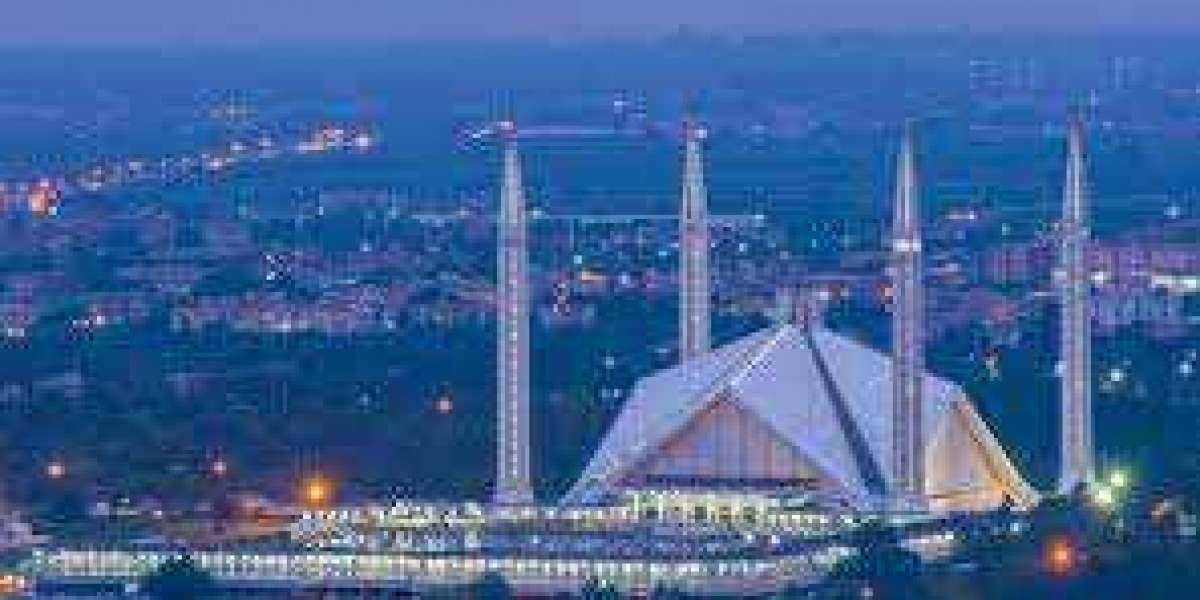The history of the Islamabad smart city dates back to 2015 when the project was initially proposed. The idea behind this initiative is to transform Islamabad into a technologically advanced and sustainable metropolis that can compete with other global cities. The project aims to enhance the quality of life for residents through innovative solutions, digitalization and modern infrastructure.
Islamabad Smart City (ISC) was launched as a joint venture between Future Development Holdings (FDH) and Habib Rafiq Limited (HRL), both renowned companies in Pakistan's real estate sector. This partnership aimed to bring world-class technology, management expertise, and resources together to provide high-quality living standards for citizens.
The development work on ISC began in 2019. It covers an area of approximately 55,000 Kanal situated near Thalian Interchange on Lahore-Islamabad Motorway M2. As per plan, it will be divided into multiple phases with each featuring different aspects such as residential plots, commercial areas and parks.
Despite facing several challenges along the way including delays due to COVID-19 pandemic restrictions,the project has made significant progress since its inception.
However,it still has a long way ahead before becoming fully functional.
It is hoped that this ambitious initiative will continue making strides towards achieving its ultimate goal of establishing Islamabad as one of Asia's leading smart cities.
The development of the Islamabad smart city
The development of the Islamabad smart city has been a long process that started back in 2019 when the government announced its intention to build a modern and sustainable city. The construction of this futuristic city is being carried out by Habib Rafiq Private Limited, one of Pakistan's leading real estate developers.
One of the key features of the Islamabad smart city is its integration with technology. This means that the entire infrastructure will be designed with technology in mind, which will make it easier for residents to access services such as healthcare, education, and transportation.
In addition to this, there are plans to include green spaces within the city to promote environmental sustainability. These green areas will not only enhance the beauty of Islamabad but also provide much-needed relief from urbanization.
To ensure that the development process proceeds smoothly and efficiently, various stakeholders have been involved in decision-making processes. This includes experts in urban planning and architecture who have provided their insights on how best to design a modern and livable city.
While there have certainly been challenges along the way, progress towards building a world-class smart city continues at an impressive pace. With continued commitment from all stakeholders involved in its development, there is every reason to believe that Islamabad's Smart City Program will continue making strides forward for years into the future.
The goals of the Islamabad smart city
The Islamabad Smart City was launched with the aim of transforming the capital city into a modern, sustainable and efficient urban center. The development of this smart city is expected to bring significant improvements in terms of infrastructure, mobility, safety and security as well as enhancing the overall quality of life for its residents.
One of the primary goals of Islamabad Smart City is to leverage technology for better management and governance. Through advanced digital solutions such as IoT sensors, big data analytics and AI-driven systems, the smart city aims to optimize resource utilization while reducing costs.
Another goal is to promote environmental sustainability by adopting green technologies such as renewable energy sources and eco-friendly transportation options. This will help reduce carbon emissions while ensuring a cleaner and healthier environment for citizens.
Smart mobility is also an important aspect that Islamabad Smart City seeks to achieve. With an integrated transport system comprising intelligent traffic management systems, electric vehicles charging stations, bike-sharing schemes etc., commuting within the city will become seamless and hassle-free.
Lastly but not leastly, one more goal that has been set by Islamabad Smart City is creating a safe living environment for its residents through advanced surveillance systems that include CCTV cameras equipped with facial recognition capabilities, emergency response services etc. These measures are aimed at enhancing public safety which forms an integral part of any smart city program.
The progress of the Islamabad smart city
The progress of the Islamabad Smart City has been quite impressive since its inception. One of the most significant development milestones is that the Executive Block has been announced, which will be the epicenter of this futuristic city. The project aims to provide innovative solutions for urban living and make Islamabad more sustainable and efficient.
Various infrastructure projects have also begun in different parts of Islamabad, including smart highways, high-speed internet connectivity, and eco-friendly transportation systems. These developments aim to create a smarter city with better traffic management and reduced carbon footprint.
In addition to infrastructure improvements, there are technological advancements being made as well. With initiatives like telemedicine services being introduced in hospitals across the city and digital payment options becoming more widespread, Islamabad's journey towards becoming a truly smart city is well underway.
Furthermore, collaborations between local authorities and international experts have ensured that best practices are implemented while keeping local sensibilities in mind. This approach ensures that all stakeholders involved work together seamlessly towards achieving common goals.
The progress made by Islamabad smart city so far is quite promising. As long as efforts continue in this direction with proper planning and implementation strategies in place at every step along with continued collaboration from all parties involved can ensure a brighter future for Pakistan's capital city
The future of the Islamabad smart city
The future of the Islamabad smart city is promising, with plans to expand and enhance its capabilities. One of the key focuses will be on developing a more sustainable and eco-friendly environment. The implementation of green technology solutions, such as solar energy, smart grids and waste management systems will help reduce carbon emissions while creating a healthier living space for residents.
Another area that will see significant growth is in the use of artificial intelligence (AI) and big data analytics to improve urban planning. This includes traffic management systems, emergency services response times, real-time weather forecasting and more efficient public transportation networks.
Additionally, there are plans to create digital infrastructure that enables citizens to access government services easily through online platforms or mobile applications. This could include e-governance portals where people can pay bills or apply for permits without having to visit physical offices.
Innovation hubs are being established which encourage entrepreneurship and provide support for startups working on cutting-edge technologies related to smart cities.
This holistic approach towards building a smarter city bodes well for Islamabad's long-term development goals. With continued investment in research development initiatives coupled with an enabling regulatory framework; it won't be surprising if Islamabad becomes one of Asia's leading smart cities within the coming years!
Conclusion
The Islamabad Smart City project is a bold and ambitious initiative that seeks to transform the city into a modern, sustainable and livable urban center. The executive block plays a critical role in ensuring that this vision becomes a reality by providing leadership and direction for the various stakeholders involved.
Despite its many challenges, including funding constraints, bureaucratic hurdles and infrastructure deficits, there are several strategies that can be adopted to improve the functioning of Islamabad’s Smart City program. These include fostering public-private partnerships, leveraging emerging technologies like IoT and AI for smart solutions, enhancing citizen engagement through community participation programs and investing in capacity building for local government officials.
Moving forward, it is essential for policymakers at all levels of government to prioritize investments in smart city infrastructure as an integral part of national development plans. By doing so, we can build more resilient communities that can adapt to new challenges while delivering quality services to their residents.
As we look ahead towards the future of Islamabad’s Smart City program with optimism and hopefulness; let us remember that we all have a role to play in making our cities smarter. Whether as citizens or policymakers- it is up to us collectively to create vibrant urban environments that are not only efficient but also equitable and sustainable for generations yet unborn.














